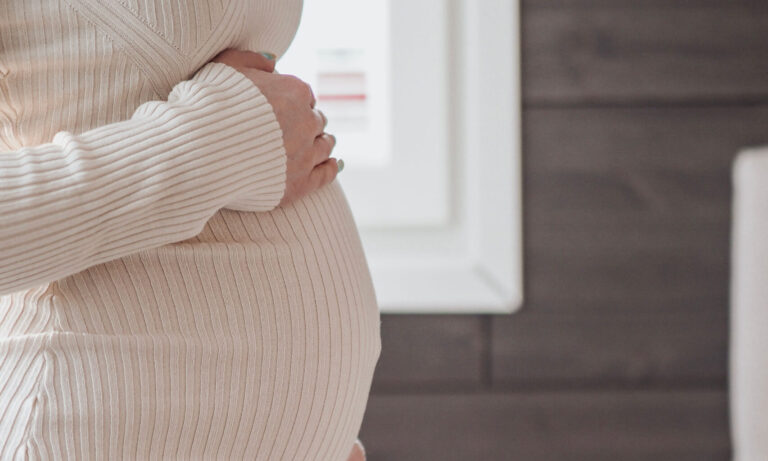Early pregnancy can be full of anticipation and a lot of questions. The body begins to send out signals that indicate the beginning of a new life. While everyone experiences pregnancy in a unique way, there are some common symptoms that occur for many expectant mothers. In this article, we’ll go through the earliest signs and symptoms of pregnancy so you can recognise them and prepare for what’s to come. Whether it’s the first few weeks or months, this information will help you adjust to this new and exciting phase of your life.
Common early symptoms: What to expect in early pregnancy?
In early pregnancy, a wide range of symptoms can occur, which may vary from person to person. However, there are some common signs that you can expect or monitor closely. These include breast tenderness, severe fatigue, nausea, mood swings and an increased need to urinate. It is important to note that these symptoms may start before your period stops. Hormonal changes during pregnancy can also cause changes to your sense of taste and smell. However, it is important to remember that each pregnancy is individual and although these symptoms are common, their absence does not necessarily mean that pregnancy has not started. Distinguishing between early pregnancy symptoms and normal PMS symptoms can be challenging. However, the most important thing is to listen to your body and contact a health professional if you suspect pregnancy. They can offer further advice and confirm the situation.
Absence of menstruation: First sign?
For many women, the first sign of pregnancy is the absence of menstruation. This can be a very clear clue, especially for those with a regular menstrual cycle. However, it’s important to note that not all women will necessarily stop menstruating immediately during the early pregnancy. Sometimes the absence of periods can also be due to other reasons, such as stress, illness or lifestyle changes. Although the absence of menstruation is the most common and expected first sign of pregnancy, it may not always happen. If you notice that your period is late and you experience other possible signs of pregnancy, such as breast tenderness or severe fatigue, you can take a pregnancy test to confirm your situation. If you have any doubts or need help to confirm your pregnancy, it is important to consult a doctor. They can offer further advice and confirm your pregnancy.
Is it your dream to get pregnant? Read about the importance of ovulation in getting pregnant here!
Breast changes: Tenderness and swelling
Many women may notice the first signs of pregnancy in the breast area. Breast changes, especially tenderness and swelling, are typical symptoms of early pregnancy. Changes in hormone levels in early pregnancy can cause darkening of the nipple area around the nipples and breast growth. Many women also report that their breasts feel tender or heavy. In addition, the sensitivity of the mammary glands and their flickering, which for some resembles the symptoms of PMS, may indicate early pregnancy. However, it is important to note that not all women may experience these signs and they alone are not a sure sign of pregnancy. However, if you are experiencing these symptoms and your period is late, it may be advisable to take a pregnancy test to be sure.
It’s important to listen to your body and give yourself permission to rest and relax
Fatigue and exhaustion: Lack of energy during pregnancy
Fatigue is one of the most common primary symptoms in early pregnancy. Many expectant mothers experience a significant drop in energy levels, mainly due to the progesterone hormone produced by the body, which has a drowsy effect. In addition, pregnancy requires a lot of energy from the body as it prepares to support the growing fetus. You may find that you need to sleep more or feel exhausted during the day. This can be confusing, especially if you feel tired early on in your pregnancy. However, it’s important to listen to your body and give yourself permission to rest and relax. Remember that fatigue is a perfectly normal part of pregnancy and usually eases in the second trimester.
Nausea and appetite changes: Causes of morning sickness
Nausea and vomiting are common symptoms of early pregnancy, often called “morning sickness”, although they can occur at any time of the day. These symptoms are mainly caused by hormonal changes in the body, which can start as early as two weeks after conception. You may also notice specific changes in your appetite, which may reflect your body’s needs during pregnancy. It is important to try to eat a diverse diet, even though certain foods may cause nausea. If you experience persistent nausea or are unable to keep food down, it is a good idea to contact a healthcare professional. Although morning sickness is common, it can often be managed and relieved by a variety of means.
Here are the best tips for dealing with pregnancy nausea!
Increased need to urinate: Why are you running to the toilet?
A common sign of early pregnancy is an increased need to urinate. This is because your body produces more fluid during pregnancy, and your kidneys process more urine as a result of increased blood flow. In addition, a growing fetus and an expanding uterus can put pressure on the bladder, increasing the need to go to the toilet more often. This symptom may appear as early as two weeks after conception and continue throughout the pregnancy. Although the increased need to urinate may be uncomfortable, it is a normal part of the physiological changes of pregnancy and a sign that your body is adapting to a new situation. It is important to drink enough fluids and respond to feelings of thirst. However, if you notice that you are urinating very frequently and your urine is very coloured or painful, you should consult a doctor.

Recognise hormonal changes: The mind-body rollercoaster
Pregnancy brings with it big changes in your body’s hormone levels, which can affect both your physical and emotional state. These hormonal changes often contribute to many of the symptoms of pregnancy, such as the absence of periods, breast tenderness, fatigue and nausea. In addition, these hormones can cause mood swings such as sudden crying spells, irritability or increased sensitivity. You may feel extremely happy and excited one moment, and then overwhelmingly sad or worried the next. It is important to understand that these feelings are normal during pregnancy and are largely the result of hormonal changes in your body. It is a good idea to share your feelings with your partner, friends or family members and to talk to your doctor or midwife if you need support or advice.
Emotional rollercoaster: The ups and downs of emotional life
Pregnancy is often a sensitive and exciting time in life, bringing with it significant hormonal changes. These changes can affect your emotional life, and it is common during the early pregnancy to experience a range of emotions, from excitement and joy to sudden nervousness, anxiety or mood swings. For example, you may cry for no apparent reason or experience sudden bursts of anger. These emotions are part of a perfectly normal “emotional rollercoaster”. During this time, it is important to be kind to yourself. Try to find ways to relax and calm down, such as meditation, yoga or reading. However, if you feel that your mood swings are starting to interfere with your daily life or cause you concern, it is a good idea to talk to your doctor or mental health professional. They can offer you the support and guidance.
Each pregnancy is unique, and these signs can differ greatly
Temperature changes: Basal temperature rise
Another possible sign of pregnancy is an increase in body temperature, called a basal body temperature rise. Many women monitor their basal body temperature to time ovulation, but if you notice your temperature remains elevated for at least two weeks after ovulation, it could indicate pregnancy. During pregnancy, hormonal changes can make body temperature more unstable in some women. For example, an increase in sudden sweating and feeling hot flushes can be the result of changes in hormone levels. However, it is important to remember that each pregnancy is individual and these signs can vary greatly. If you notice significant temperature fluctuations or are unsure about the situation, it is a good idea to contact a healthcare professional for more information and reassurance about your situation.
Why shouldn’t you eat salty liquorice when you’re pregnant? Read more here!
When it’s time to take a pregnancy test: Best times and methods
You have already noticed several possible signs of pregnancy and are wondering when the best time to take a pregnancy test to be sure is. Generally speaking, the best time to take a home pregnancy test is on the first day your period is late. Pregnancy tests work by detecting the pregnancy hormone hCG in your urine, which is produced early in pregnancy. An early morning test is recommended because your urine is stronger and contains more hCG. However, it is important to note that hCG levels increase daily, so the sensitivity of the test will also improve over time. If you test negative but do not start your period or have other symptoms of pregnancy, you should consider having another test in a few days or weeks. If you are still in doubt, it is advisable to contact your doctor or other health professional for more information and, if necessary, support.










